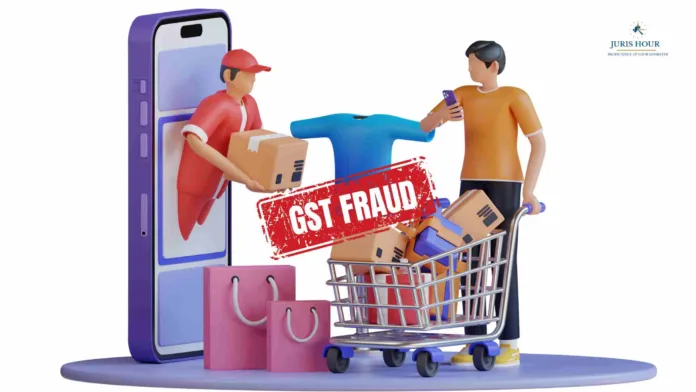The CGST Faridabad Commissionerate has unearthed a fraudulent input tax credit (ITC) racket amounting to Rs. 64.25 crore, involving the passing of ineligible ITC without actual supply of goods by misuse of Business-to-Consumer (B2C) credit from online mobile sales.
Two individuals — Sanket Mittal and Naveen Tayal — have been arrested and remanded to 14-day judicial custody by the Faridabad District Court.
The case, represented by Shri Harpreet Singh, Senior Standing Counsel, reveals a meticulously planned fraud facilitated through two shell firms — Balaji Mobile Addition and Monit Enterprises — set up using forged documents. Investigations have shown that the firms were fraudulently registered in the names of the primary accused’s grandmother and a domestic servant, respectively.
Modus Operandi
Using data analytics and cross-jurisdictional intelligence, authorities discovered that the firms were issuing invoices without the actual movement of goods. The main accused reportedly procured International Mobile Equipment Identity (IMEI) numbers of iPhones sold on platforms such as Amazon, Flipkart, and Appario through dubious sources. These IMEIs were falsely shown as legitimate purchases to fraudulently avail and pass on ITC — despite the phones being directly sold to individual consumers (B2C), leaving no trace of B2B procurement.
Key highlights from the investigation include:
- IMEI Verification: Analysis of over 8,000 IMEIs revealed no purchase trail linking the entities to the mobile phones sold. Apple India confirmed the sale of these iPhones to e-commerce platforms and directly to end consumers.
- Forged Utility Documents: Registration of the firms was secured using fabricated electricity bills. Dakshin Haryana Bijli Vitran Nigam confirmed that the documents did not correspond to any legitimate consumer.
- Fake E-Way Bills: Scrutiny of E-Way Bills exposed bizarre discrepancies — including the alleged transport of goods worth ₹5.41 crore using Haryana Roadways buses. Many vehicles listed were found to be either invalid or misused.
- GSTR-2A and L-Level Mismatches: Reports from ADVAIT and multiple jurisdictions highlighted a complete absence of genuine purchase records at the L4 to L6 supplier chain levels, proving that no actual goods were ever received.
- Evading Surveillance: Both accused kept shifting locations frequently to avoid detection and arrest.
Authorities emphasize that this operation underscores the increasing sophistication of GST frauds, with fraudsters exploiting digital marketplaces and weak verification checks. The case is part of an ongoing crackdown on fake invoicing and circular trading, and further investigations are in progress.
Read More: Understanding GST Compliance: A Financial Perspective for Entrepreneurs

